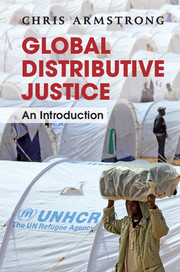5 - Global justice and natural resources
from II - Issues
Published online by Cambridge University Press: 05 June 2012
Summary
Natural resources are distributed very unevenly throughout the world. The territories of some nation states contain abundant mineral resources which can command high prices on world markets – think of Saudi Arabia and its oilfields, or South Africa and its diamonds. Likewise, the fact that Britain was the first country to undergo an industrial revolution is considered to be at least partly due to its ready supplies of coal, iron and fast-running water. But some countries possess resources in much more meagre quantities, and may not even have secure access to the essentials of life. Millions of people currently have insecure access to clean drinking water, for instance, and while the most severe problems are faced by the inhabitants of the Middle East, north Africa and parts of sub-Saharan Africa, water scarcity is a growing problem for many people elsewhere (Falkenmark and Lundqvist 1998).
The unevenness of the distribution of resources has been thought by some to have implications for global justice. After all, the processes by which national borders have come to be drawn on maps and subsequently defended by military force – and as a result of which rivers, coalfields or seams of gold end up in one nation’s territory rather than another’s – are hard to defend from a normative point of view. They have often involved military conquest, colonialism, violent dispossession and even genocide. Given this murky history, can nation states be thought to deserve, or have a just claim to, the resources that happen to be found within their borders? Or should resources be seen instead as some kind of collective asset? From the point of view of distributive justice should we try to correct or compensate for the current unevenness of resource distribution? If so, how would we go about doing that?
- Type
- Chapter
- Information
- Global Distributive JusticeAn Introduction, pp. 136 - 161Publisher: Cambridge University PressPrint publication year: 2012



